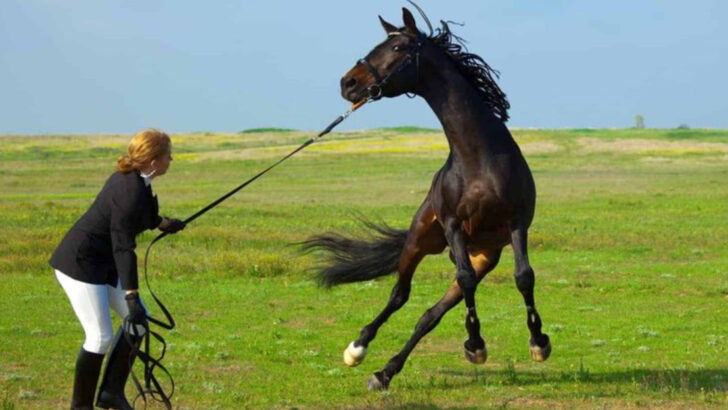Locking a horse in a stall all day is like asking a marathon runner to sit on the couch forever. It’s unnatural, unhealthy, and just plain unfair.
Horses are built to move—grazing, stretching, playing, and just being, well… horses. When they’re stuck inside too long, they get stiff, frustrated, and even a little wild. Ever seen a horse explode into joyful bucks the second they’re turned out? That’s all the proof you need.
Turnout isn’t just about fresh air and freedom—it’s about physical health, mental balance, and a happier, more relaxed horse. From stronger hooves to fewer bad habits, regular turnout does wonders for their well-being.
If you want a content, healthy horse (and let’s be real, fewer vet bills), then turnout isn’t optional. Here are 14 reasons why it’s one of the best things you can do for your horse.
Physical Exercise
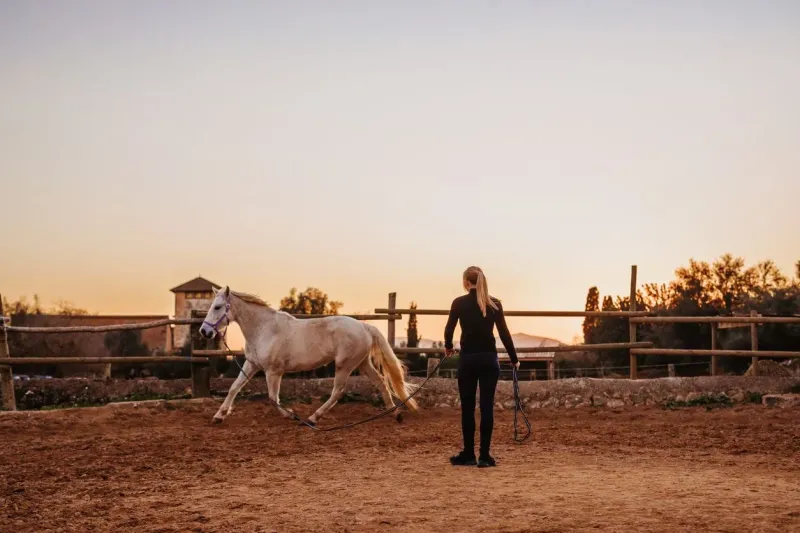
Turnout provides horses with essential physical exercise. Allowing them to move freely helps maintain healthy weight and muscle tone.
Horses that are confined to stalls lack opportunities for natural movement, which can lead to obesity and muscle atrophy.
Regular exercise through turnout supports cardiovascular health, enhancing circulation and stamina. It also promotes joint flexibility and reduces the risk of injuries caused by sudden, intense activity. Consider providing ample space for your horse to trot and gallop in turnout areas. Such movement mirrors their natural behavior and improves their overall fitness.
Mental Stimulation
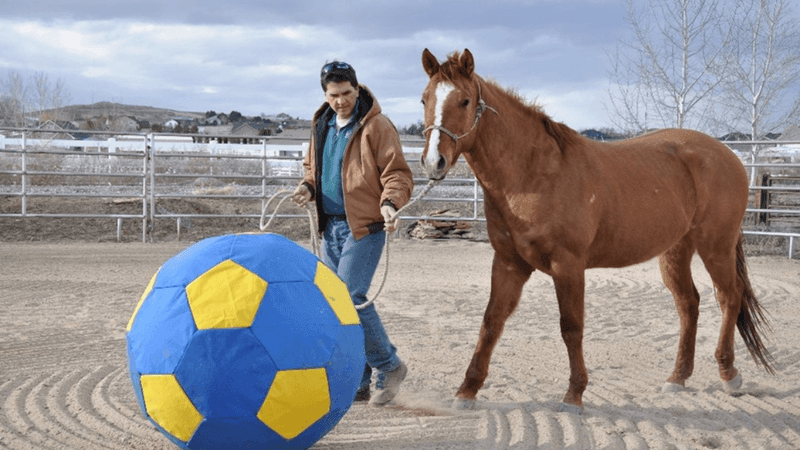
Turnout offers necessary mental stimulation for horses. In a pasture, horses encounter varied terrains, scents, and sights that are absent in stalls.
This environment allows them to engage their senses, helping prevent boredom and related behavioral issues like cribbing. Horses are naturally curious creatures, and turnout satisfies this curiosity, providing enrichment that’s vital for mental well-being.
Consider rotating the areas they graze in to keep things interesting. Providing toys or obstacles in the field can also enhance this stimulation, keeping your horse engaged and content.
Social Interaction
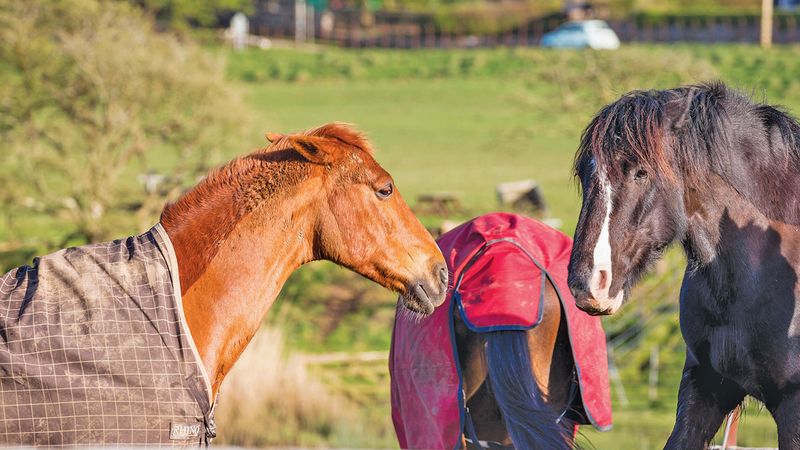
Turnout allows horses to engage in social interaction, essential for their mental health. Horses are herd animals, thriving on companionship.
In turnout, they can establish social hierarchies, engage in mutual grooming, and develop friendships. These interactions reduce stress and anxiety, contributing to a happier, more balanced horse.
Without such opportunity, horses may develop vices due to loneliness. Observing group dynamics can also offer insights into your horse’s personality. Ensure your turnout group is compatible to foster a harmonious environment that supports social bonding.
Natural Grazing Behavior
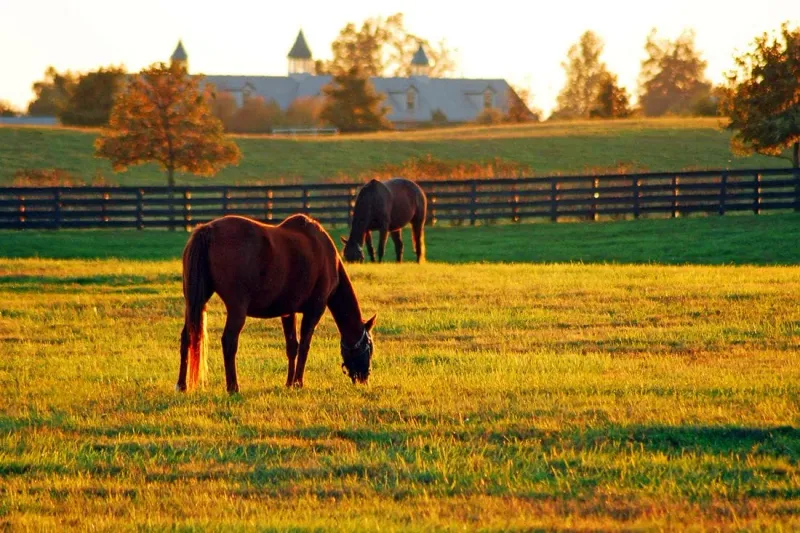
Turnout enables horses to engage in natural grazing behavior, which is crucial for their digestive health. Horses are designed to eat small, frequent meals while moving.
Allowing them to graze on pasture mimics this natural pattern, promoting proper digestion and reducing the risk of colic and ulcers.
Grazing also helps wear down teeth naturally, preventing dental issues. To optimize this, ensure your pasture has a diverse mix of grasses. Monitor grazing time to prevent overconsumption, which can lead to weight gain, especially in lush pastures.
Stress Reduction
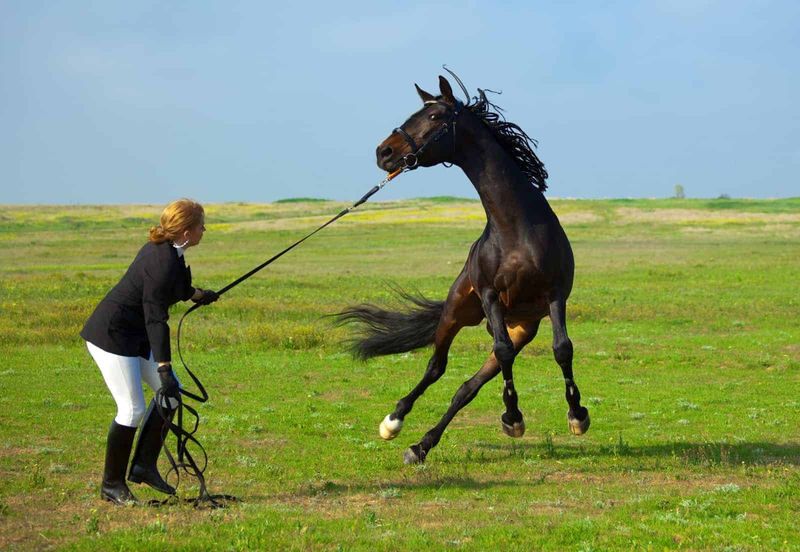
Turnout is essential for reducing stress in horses. Being confined in a stall for long periods can lead to frustration and anxiety.
In contrast, turnout provides a peaceful environment where horses can relax and unwind. The freedom to move and interact with their surroundings reduces cortisol levels, a stress-related hormone.
Providing consistent turnout schedules helps horses feel secure and stress-free. A tranquil setting with minimal disturbances like loud noises or aggressive animals can enhance this calming effect, promoting a serene and happy horse.
Joint Health
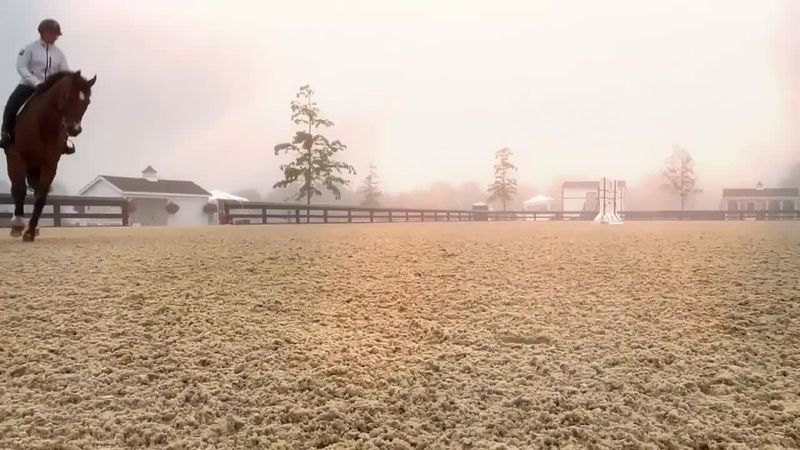
Turnout is vital for joint health in horses. The consistent, low-impact movement available during turnout helps maintain joint flexibility and lubrication.
This reduces the risk of stiffness and arthritis, common in horses with limited movement. Regular turnout is especially beneficial for older horses, keeping them active and mobile.
It’s crucial to ensure that turnout areas have even terrain to prevent injuries. Also, monitor for any signs of joint discomfort, adjusting turnout times or terrains if necessary to support your horse’s joint health effectively.
Natural Hoof Care
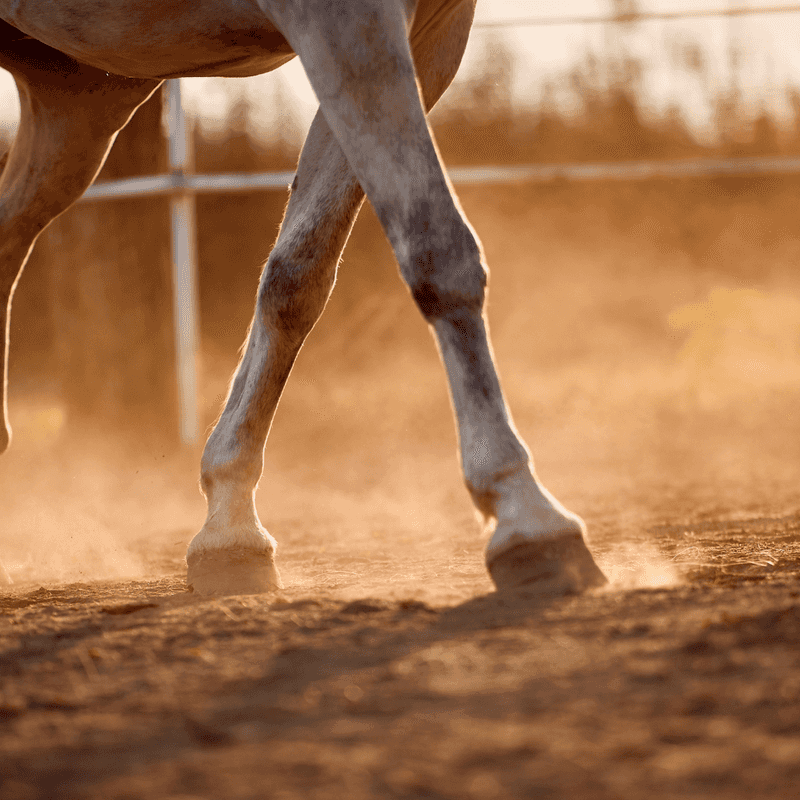
Turnout contributes to natural hoof care by allowing horses to walk on various terrains. This natural abrasion helps maintain hoof shape and strength.
Consistent movement also enhances blood flow to the hooves, promoting growth and overall hoof health.
Horses restricted to stables may experience hoof issues like overgrowth or imbalances. Ensure your turnout area includes different surfaces such as grass, dirt, and gravel, which can provide the necessary abrasion and support hoof development, reducing the need for frequent trimming.
Weight Management
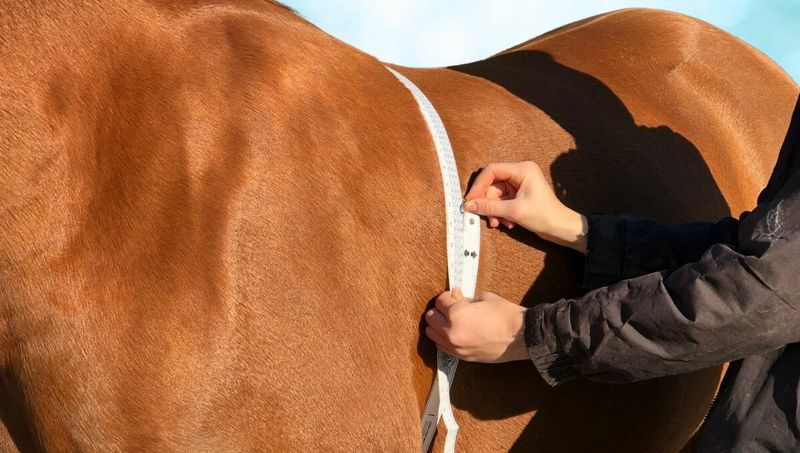
Turnout plays a crucial role in a horse’s weight management. By allowing natural movement and grazing, horses can maintain a healthy weight more effectively than those confined to stalls.
This regular activity helps prevent obesity and related health issues like laminitis and metabolic syndrome.
Adjusting the turnout duration or the richness of the pasture can help manage weight, particularly in easy keepers. It’s beneficial to monitor your horse’s condition regularly, altering their diet or turnout routine as needed to keep them in optimal health.
Improved Digestion
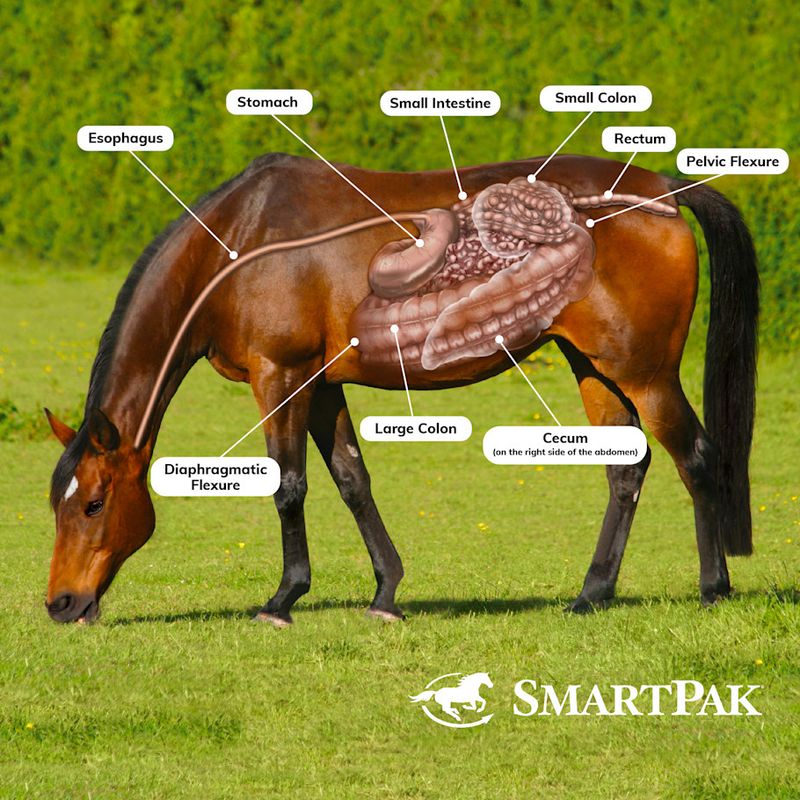
Turnout significantly benefits your horse’s digestion. The continuous forage available during pasture turnout aligns with a horse’s natural digestive needs.
This helps maintain a healthy digestive tract, reducing the risk of colic and other gastrointestinal issues.
Regular grazing encourages saliva production, which aids in digestion and balances stomach acidity. Providing access to fresh water and monitoring pasture quality ensures optimal digestive health. Consider introducing new grazing areas gradually to allow the digestive system to adjust, minimizing the risk of digestive disturbances.
Enhanced Respiratory Health
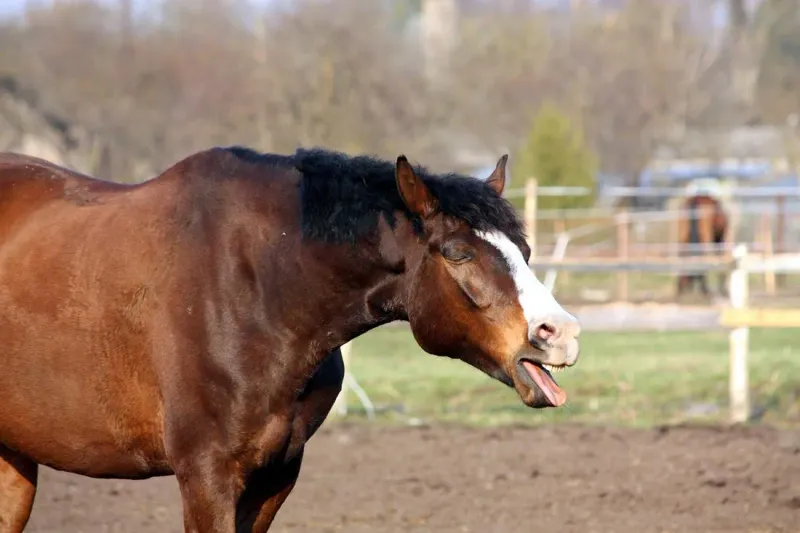
Turnout supports respiratory health by allowing horses fresh air and reducing exposure to dust and ammonia found in stables.
Continuous confinement in stalls can lead to respiratory issues due to poor air quality. Outdoor environments offer better ventilation, reducing the risk of respiratory illnesses like heaves.
Ensure that pastures are clean and free from mold or dust that could irritate your horse’s respiratory system. Observe any changes in breathing patterns, adjusting turnout locations if needed to ensure your horse breathes easy and stays healthy.
Mental and Emotional Balance
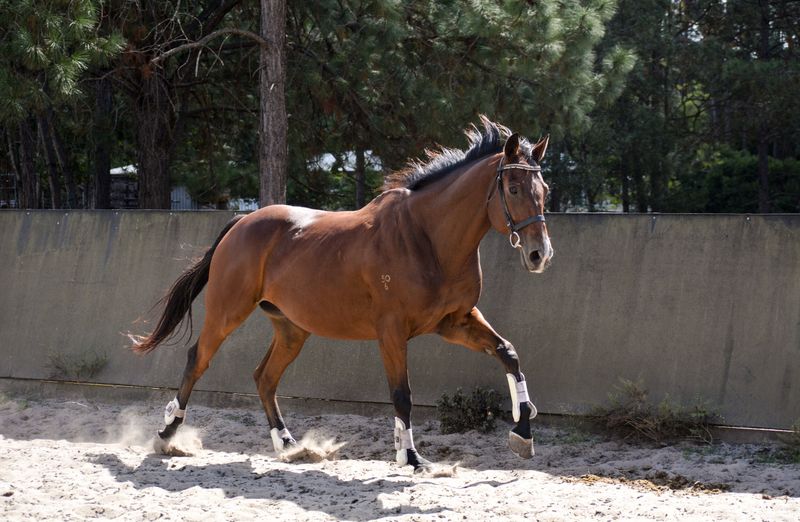
Turnout contributes to a horse’s mental and emotional balance by offering a sense of freedom and contentment. The ability to roam and explore reduces feelings of confinement and frustration.
Horses with regular turnout are often more relaxed and exhibit fewer behavioral issues.
The natural environment fosters a sense of peace, allowing horses to express themselves naturally. It’s important to create a safe and stimulating turnout setting to maximize these benefits, ensuring your horse remains happy and emotionally balanced.
Behavioral Benefits
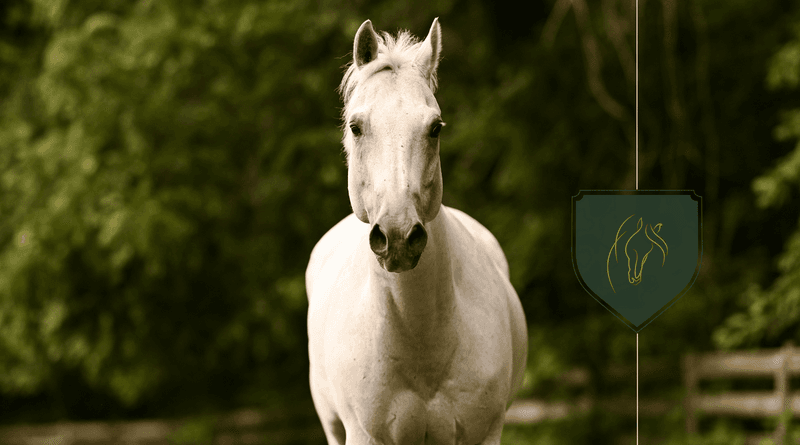
Turnout offers significant behavioral benefits by allowing horses to express their natural instincts. These activities include running, playing, and interacting with others, which are limited in stabled conditions.
Such freedom helps reduce unwanted behaviors like weaving and box walking, which often arise from boredom and confinement.
By providing ample space and social opportunities, you can improve your horse’s behavior. Observe how your horse interacts and play, ensuring the environment is safe and free from hazards that could cause accidents during their playful antics.
Supports Natural Foraging Instincts
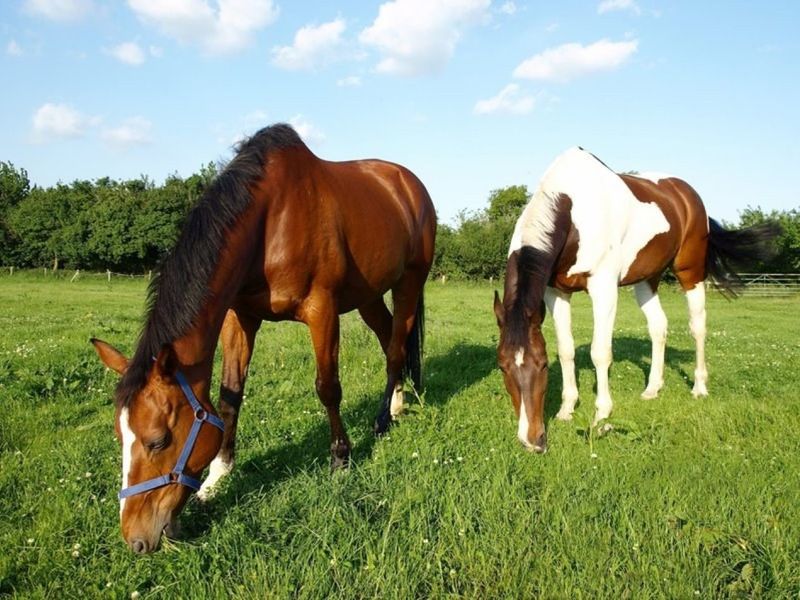
Turnout supports a horse’s natural foraging instincts, crucial for psychological and physical health. Horses are natural foragers, and turnout provides the opportunity to search for varied sources of food.
This behavior encourages natural feeding habits and prevents boredom associated with limited feed options.
Providing a variety of plants in the pasture can enhance this instinct, promoting a balanced diet and mental engagement. Monitor the types of plants available to ensure they are safe and nutritious, supporting your horse’s natural foraging behavior effectively.
Prevention of Stable Vices
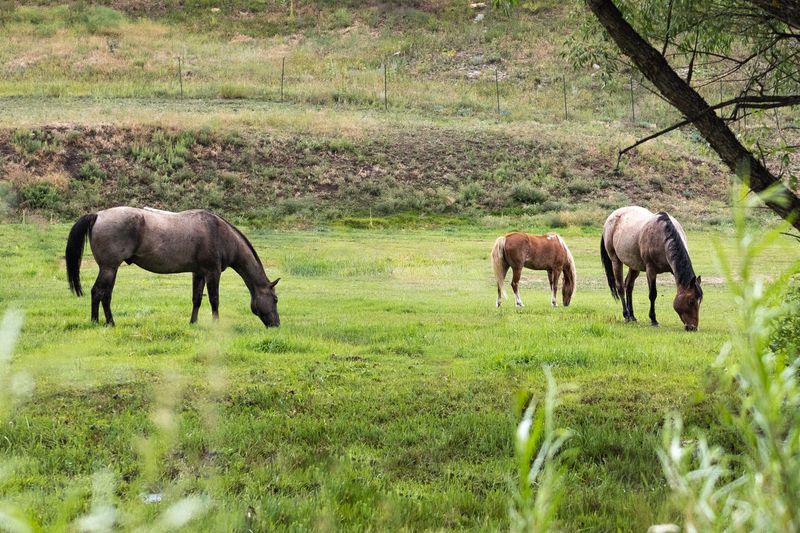
Turnout helps prevent stable vices by addressing the root causes of these behaviors. Horses confined for long periods may develop habits like cribbing, weaving, or stall walking.
These behaviors often stem from stress, boredom, or lack of social contact. Turnout provides a natural outlet for energy and allows for socialization, reducing the likelihood of vices developing.
By ensuring regular turnout and a stimulating environment, you can minimize the risk of stable vices and promote a healthier, more balanced lifestyle for your horse.

